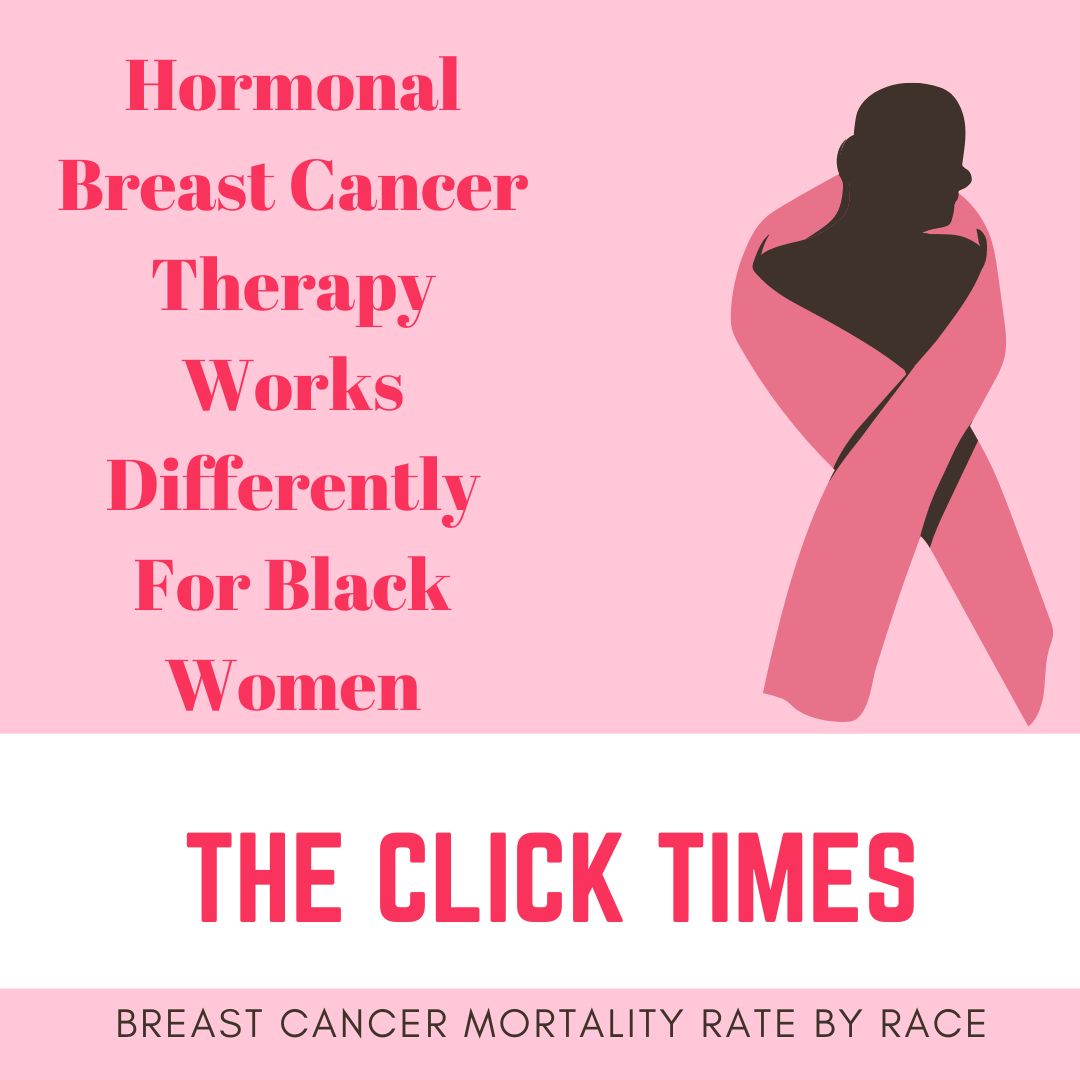The Click Times: Black women with breast cancer are more likely than other women to die from the disease, and they are also more likely to undergo less aggressive treatment.
The efficacy of hormone therapy administered before surgery for women with breast cancer may be predicted in part by their race.
Hormonal Breast Cancer Therapy May Work Differently, Depending on Patient’s Race

Hormonal breast cancer therapy is delivered through a variety of methods. Some women are treated with traditional hormone replacement therapy, which involves taking the same amount of estrogen and progesterone that a woman’s body would have produced naturally at the time of menopause. This type of regimen can provide immediate relief from the symptoms of hormone-related breast cancer, but it is not as effective as other types of hormonal therapy.
If you or someone you know has been diagnosed with breast cancer, you may be wondering what options are available to treat your condition. The best way to answer that question is by talking with your doctor about your specific needs and goals for treatment. Your doctor will also be able to explain how your treatment plan works and how it could change over time as your body responds to the therapy.
According to a recent study, Black women who receive hormone therapy prior to cancer surgery, or “neoadjuvant endocrine therapy,” may be more likely to benefit from it than white women if they receive it earlier in the course of their cancer. However, if the condition is treated at a later stage, they might not benefit as much as white women.

Black women are more likely to develop breast cancer than white women. But they’re also more likely to see their tumors shrink through hormonal therapy. In a study of more than 3,000 black and white women with early-stage breast cancer, researchers found that racial differences in response to hormone therapy could be explained by variations in genes that control the body’s response to androgens — male hormones such as testosterone.
According to Dr. Veronica Jones, an assistant professor in the breast surgery division at City of Hope in Duarte, California, “our findings indicate that neoadjuvant endocrine therapy alone may not be the ideal approach in Black women who report more advanced cancers.
Hormone treatment is often used to treat breast tumors that express estrogen and progesterone hormone receptors on cancer cells. It is possible to have the treatment either before or after surgery. (It is referred to as neoadjuvant therapy before surgery.)
About 70% of all breast cancer cases are caused by these cancers.
Regardless of race, hormone treatment is used to treat almost all patients with breast cancer that has the hormone receptor (HR) gene mutation. Nevertheless, Jones stated in a news release from the
association that Black women have four times higher mortality rate from HR-positive breast cancer than White women.
In particular, in a community that experiences a significantly higher death rate, Jones continued, “We need to better understand if universal endocrine [hormone] therapy is the proper approach.
In order to do that, the researchers looked at 365 Black women and a little over 3,500 white women who were part of the National Cancer Database. They had all undergone pre-operative hormone therapy and all had stage 1 to stage 3 HR-positive breast cancer.
The study’s investigators discovered that Black women had a 1.6-fold higher risk of having lymph node cancer at the time of diagnosis. Additionally, compared to white women, they were 1.5 times more likely to have stage 3 illnesses.
For More Information
The American Cancer Society has more on breast cancer hormone receptors.

